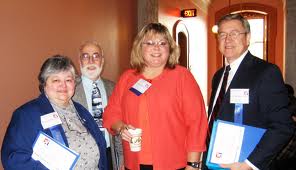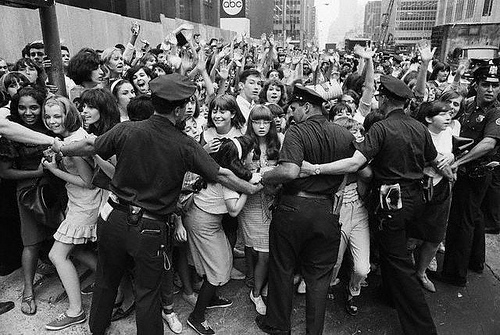| Timers Participating as a timer at the national finals is an important job. Please watch the Timers' Video to help prepare you for the national finals. All hearings on Saturday and Sunday are ten minutes long (four minutes for the opening statement and six minutes for follow-up questions). On Monday the hearings are extended to fifteen minutes (four minutes for the opening statement and eleven minutes for follow-up questions). Timers' Orientation Video Facilitators are responsible for escorting in a timely fashion a panel of judges to the hearing rooms. Once in a hearing room facilitators officially welcome everyone. Facilitators are also responsible for distributing score sheets to the judges and collecting them after the hearings.  Room Supervisors are responsible for monitoring hearing rooms and greeting teachers, students, visitors, and judges. During the competition room supervisors control access to the hearing rooms. Floor Supervisors are responsible for greeting classes upon arrival at the competition. They are also responsible for directing classes, parents, visitors, and other guests to the student briefing room and the hearing rooms. After the completion of class hearings, the floor supervisors help direct classes to their buses. They also inspect the hearing rooms to make sure they are ready for the next division of classes. Floor supervisors are always ready to handle any problems that may arise.  Scorers are responsible for tabulating the judges' score sheets for each of the fifty-two classes. The scoring team includes six volunteers. Scoring works like this: six different panels of three judges score each of the six units for a total of eighteen judges' score sheets. Each class testifies on one question on Saturday and testifies again on a different question on Sunday (3 judge panels x 6 units x 2 days = 36 score sheets). Each score sheet includes six criteria, and each criterion is worth ten points. The highest possible score for each score sheet is 60 points. Each unit is judged by three judges; therefore, the highest possible unit score is 180 points. Because there are six units, the highest possible class score is 1,080 points. Because classes testify on two days, the highest possible total class score is 2,160 points. Classes qualify for the top ten by earning combined scores from the first two days of competition. The national winner is determined by doubling the third-day scores and adding them to the total scores for the first two days. The highest score possible for the national finals is 4,320 points. |
About
 The Center for Civic Education is a national, nonpartisan, nonprofit organization dedicated to cultivating an informed and thoughtful citizenry committed to democratic principles and actively engaged in the practice of democracy. We do this primarily through our flagship programs, We the People and Project Citizen, but we also provide high-quality, inquiry-driven curricular programs that bring civic learning to life. The Center additionally equips educators with professional learning that builds confidence and capacity to teach civics with depth and relevance, unlocks students’ civic agency by creating opportunities to demonstrate their knowledge and skills, and share their voices through simulated hearings and other public forums. These initiatives build a national community committed to strengthening civic understanding and participation for all and root everything in decades of research and evidence. Learn more.
The Center for Civic Education is a national, nonpartisan, nonprofit organization dedicated to cultivating an informed and thoughtful citizenry committed to democratic principles and actively engaged in the practice of democracy. We do this primarily through our flagship programs, We the People and Project Citizen, but we also provide high-quality, inquiry-driven curricular programs that bring civic learning to life. The Center additionally equips educators with professional learning that builds confidence and capacity to teach civics with depth and relevance, unlocks students’ civic agency by creating opportunities to demonstrate their knowledge and skills, and share their voices through simulated hearings and other public forums. These initiatives build a national community committed to strengthening civic understanding and participation for all and root everything in decades of research and evidence. Learn more.
Center for Civic Education
5115 Douglas Fir Road, Suite J
Calabasas, CA 91302
Phone: (818) 591-9321
Email: web@civiced.org
Media Inquiries: cce@civiced.org
Website: www.civiced.org




